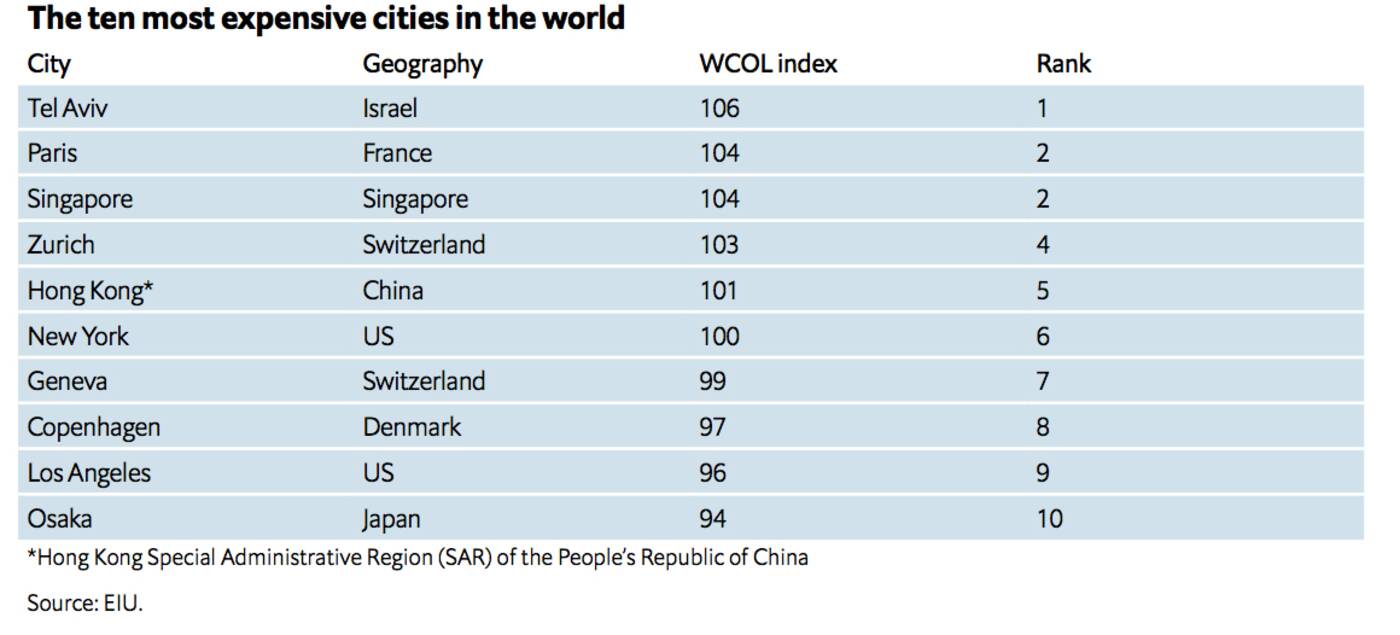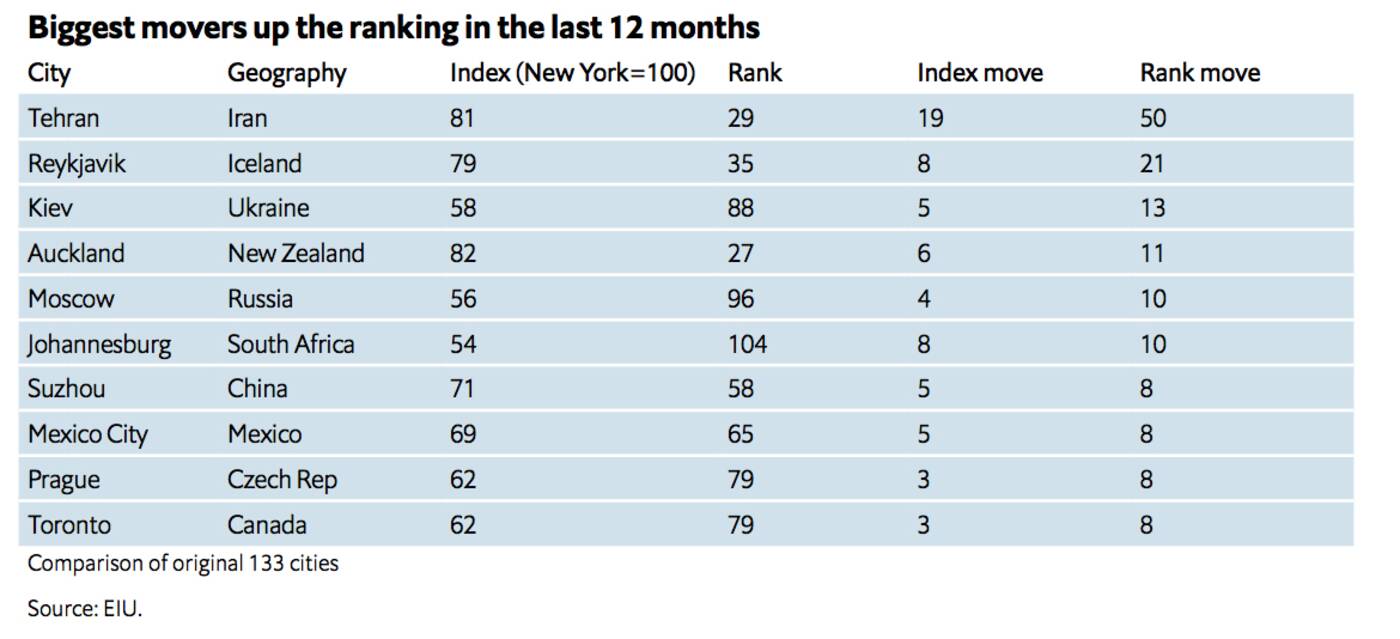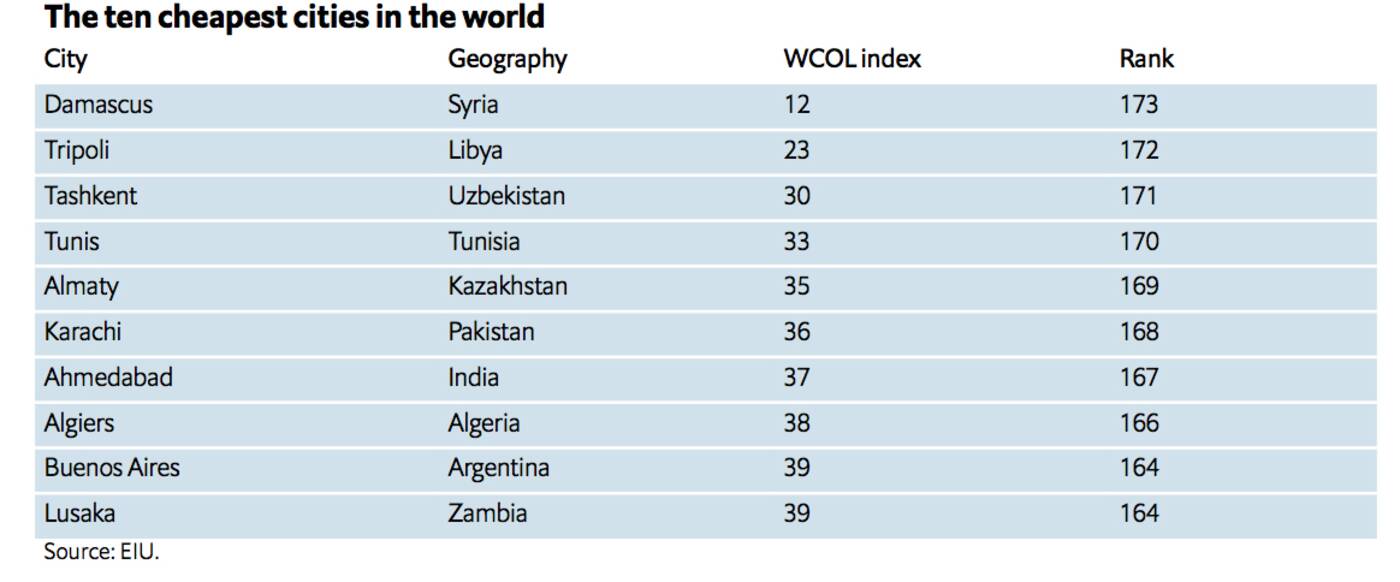
Toronto doesn't make top 50 most expensive cities in the world but is rising quickly
Toronto doesn't rank in the top 10 or even top 20 most expensive cities in the world but the 2021 report from Economist Intelligence suggests the 6ix is rising quickly.
Toronto, like many cities around the world, has seen everything get more expensive, likely due, in part, to global supply chain issues. Of course, it's no secret that Toronto's real estate prices have skyrocketed in the last 20 years. But the city isn’t anywhere close to being the most expensive place in the world.
That honour goes to Tel Aviv, according to the Economist Intelligence Worldwide Cost of Living for 2021. Tel Aviv moved up from fifth place last year. Paris, last year's most expensive city, now ties with Singapore as the second most expensive place to live in the world.
The report suggests Tel Aviv topped the rankings this year because the Israeli currency, the shekel, has appreciated due to Israel’s successful COVID-19 vaccine rollout.

The Worldwide Cost of Living report explores the cost of living in 173 cities, measured against impactful global events.
The report notes, on average, prices for goods and services have risen by 3.5 per cent year-on-year, the highest inflation rate seen in the last five years.
Toronto, while not in the top 20, ranks as one of the biggest movers up in the last 12 months, according to the report. We have moved up eight spots in the rankings to the 79th most expensive city in the world, tying with Prague.

It comes as no surprise some of the world's cheapest cities are also the most politically unstable. War-torn Damascus, Syria tops the list.

Economist Intelligence predicts the cost of living will continue to rise further in many cities. However, the report notes, as central banks cautiously raise interest rates to stem inflation, price increases should moderate.
The report forecasts global consumer price inflation will average 4.3 per cent in 2022, down from 5.1 per cent in 2021 but still substantially higher than in recent years.
But there is good news on the horizon.
"If supply-chain disruptions die down and lockdowns ease as expected, then the situation should improve towards the end of 2022, stabilising the cost of living in most major cities," the report notes.
Latest Videos
Latest Videos
Join the conversation Load comments







